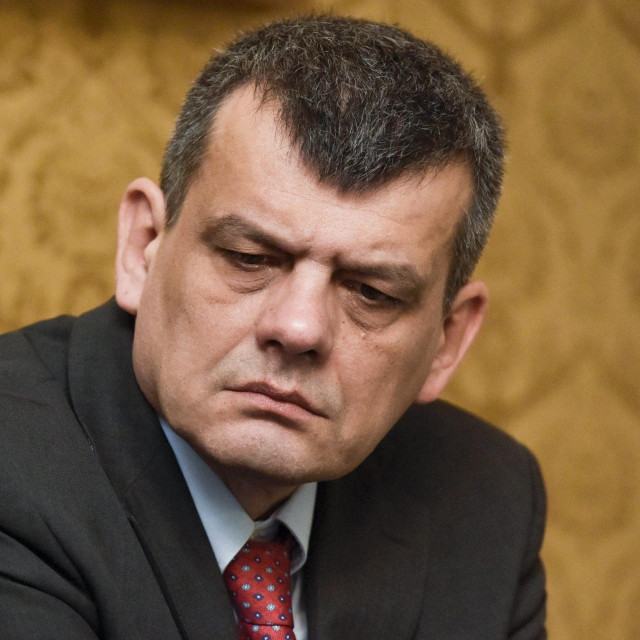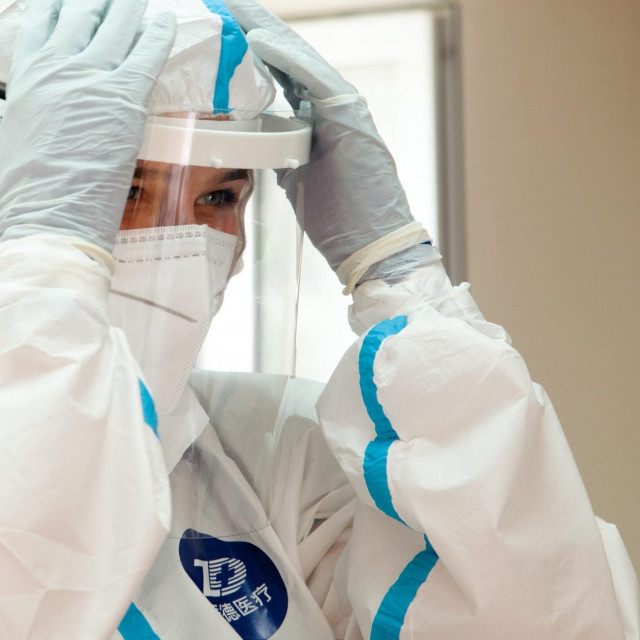EPIDEMIOLOGIST KAIĆ:
Why count more infected? Only lockdown stops the virus, and the Serbian scenario is possible in our country
Bernard Kaić also believes that the acquisition of collective immunity is meaningless, he advocates the obligation to wear masks in public spaces
Epidemiologist Bernard Kaić explained in an interview to host and editor Nataša Božić Šarić in Točka na tjedan N1 television whether Croatia will find itself in a situation with the coronavirus as Serbia is now, what is the importance of influenza vaccines to save the health system from collapse, and how important it is to keep your distance and wear masks. Among other things, he said 2.3% of those tested were in contact with the virus.
- That would mean that we have 30 unrecognized patients per recognized patient, so the meaning of counting patients is being questioned, so the meaning of finding contacts is also questionable, said Kaić. He added that he is concerned because the virus is clearly not giving up with the warm weather as we all hoped.
- The number of patients is growing, and I think that the spread of the virus is impossible to stop without very strict measures such as we had in March and April, and it is certain that it will continue to spread. If there are a large number of infected, there will also be a large number of those with more severe symptoms and deaths. An additional reason why there are fewer hospitalized now is that in the beginning we hospitalized practically all patients, but over time we realized that this was unnecessary. There are more serious and serious diseases from which more people die, but since it is necessary to seriously engage the health system, it can be said that this is the biggest scourge for the health system - said Bernard Kaić.
In 10 days we had 706 patients, three months ago in 10 days we had 684 patients. What is the difference?
- Nothing is different, everything is exactly the same, only then we hoped that it could be stopped. At that time, the wave had just started and there was hope that with very strict measures, its spread could be stopped. But apparently, this will not be able to stop like that. The virus cannot be stopped without strict measures, but I would not recommend strict measures again. If we all shut down for a month, the transmission of the virus would stop - with enormous damage. Both the economy and people's health, especially the mental health, suffered. It can be done again, but again when we open everything, we will have the sick again. The best possible way to keep it under control should be found - said Kaić and added that dancing with the virus is a completely inadequate expression.
- There is nothing to dance with the virus that makes people die. There are some indications that the virus could become less pathogenic. If we could keep everything under control until that future, we would save more lives, he said.
Introduce masks in public spaces
He adds that, as far as he is concerned, masks should be introduced in public spaces.
- I would introduce the obligation to wear a mask in public places. I would introduce commitment and physical distance, which obviously does not exist. I would reduce the number of people allowed indoors. All places where physical distance cannot be maintained, such as nightclubs and weddings, I would reduce. Reducing rallies seems to be the only way to limit rallies. If everything were released, if people behaved as before the crown, we would quickly have thousands of patients and hundreds in hospitals - said Kaic, adding that the time to limit rallies was two weeks ago.
- The question is whether the measures should have been relaxed to that extent. If the spread of the virus is to be slowed down, measures should be tightened, but a decision can be made not to do so. We have now reached the maximum and if there are more patients, we will have to stop monitoring contacts. When we had a lockdown, we managed to accumulate 2,000 patients, many more were asymptomatic - said Kaić.
He stressed the importance of adhering to the measures.
- It is important that everyone adheres to measures to prevent the spread of the virus. We know that more people than were infected were infected, but strict measures led to the virus not spreading. Clearly, we can’t stay home like we did in March, but people need to stick to risk reduction measures. Physical distance, masks and hand washing - everyone still agrees on that. Other measures, such as reducing gatherings, are what there are disagreements about.
We know that many more people were infected than we detected, but strict measures resulted in them not transmitting the disease. That is why people should adhere to measures in everyday life and in public gatherings - he told N1 .
Acquiring collective immunity makes no sense
He also says that they finished testing the samples and that the data show that about 2.3% of people were in contact with the virus.
- How many people were in contact with the virus, is it 1-3 percent - this is not an important figure, because it is small data, 2.3% of people we tested were in contact with the virus, which would be 80,000-90,000 People. This would mean that we have 30 unrecognized patients per recognized patient, so the meaning of counting patients is questioned, so the meaning of finding contacts is also questionable. Acquiring collective immunity makes no sense, given that we have 30 unrecognized.
Measures to slow down make sense, because if we have 500,000 infected in three months instead of 80,000 infected, we will have more deaths and more hospitalizations. Every effort should be made to slow the spread of the virus. There is no evidence that the clinical picture of the patients has changed - said Kaić.
Of the 24 people who had evidence of being in contact with the virus, as determined by the Eliza test, only 2 percent had bodies that protect against the virus, he said.
- But it is a small study and we cannot claim anything based on it, but we have a strong basis for the hypothesis that less than 10 percent of people who have been in contact with the virus have acquired immunity. We are testing more now, maybe not 30 unrecognized ones now, but 10-15, but there are still some. I don't know what we would achieve if we tested everything now and found out that we have 6000 infected people and put them all in quarantine, we would miss those who are infected again, but they are not positive on the test yet - he said.
We can expect a scenario from the neighborhood
There is no evidence that the virus is weaker, he says, so he answers the question whether a worse situation like the one in Serbia awaits us.
- There are a lot of hospitalizations and deaths in the neighborhood, so we can expect this to happen in our country as well. In the next few weeks, we can expect an increase in hospitalizations, those who need a respirator, and an increase in mortality, he said.
When it comes to the Swedish model, he said that Sweden did not defend anything, but that the citizens followed the instructions.
- Sweden did not defend anything, they did not close schools, companies, they did not cancel transportation, but they strictly recommended physical distance, disinfection and work from home. The citizens adhered to that - said Kaić.
And unless stricter measures are taken, he says it is not possible to predict whether he will go to school in the fall.
- I think they will go to school in the fall, but it is difficult to say in advance. The school opened when we were in a downward incidence, we need to see the experiences of other countries about how the opening or closing of schools had an impact on the spread of the virus - said Kaić.
As for the vaccine, he says that, after testing, risk groups should be vaccinated.
- Targeted vaccination should be recommended for certain categories. If this vaccine were as effective as the one against tetanus, I would recommend it to the elderly population and people with chronic diseases. But we will think about that when we find out the properties of the vaccine, because, for example, the flu vaccine does not have such a high protection - said Kaić and emphasized the importance of influenza vaccination.
- People need to be vaccinated against the flu, especially now, because it is difficult to distinguish one from the other, the flu from the coronavirus. However, the vaccine reduces the chance of the flu, and the burden on the health system from the flu and the corona can lead to the collapse of the health system, and that is why the flu vaccine plays a big role - concluded Bernard Kaić in a great interview for N1






Nema komentara:
Objavi komentar